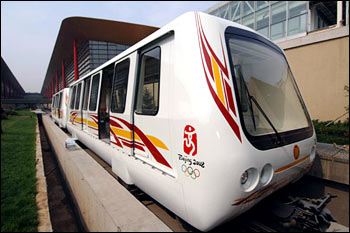
The week of September 24 saw members of the ITS Library take to the road to spread the word. First off was Kendra Levine, visiting ITS Irvine on Tuesday the 25th to speak about the Library and its outreach services, followed next day by a visit to ITS UCLA to address new students at its Fall Orientation. While in the neighborhood she called in on our friend Matt Barrett, director of the MTA Library in downtown Los Angeles.
Meanwhile on Wednesday the 26th, John Gallwey traveled to speak at the Fall Orientation for new graduate students at ITS Davis. Recent circumstances had deprived him of a car so he journeyed by train. This proved so pleasant that he resolved, after years of driving between the Bay Area and Davis, to use this mode for future trips.
Lastly and by no means least, Library Director Rita Evans was in Sacramento on Thursday the 27th to speak at the Informational Resources For Transportation Research workshop at Caltrans headquarters. Her co-presenters at this program for Caltrans engineers were Susan Haake, director of the Caltrans Library and Laura Melendy, director of the ITS Technology Transfer Program.

















